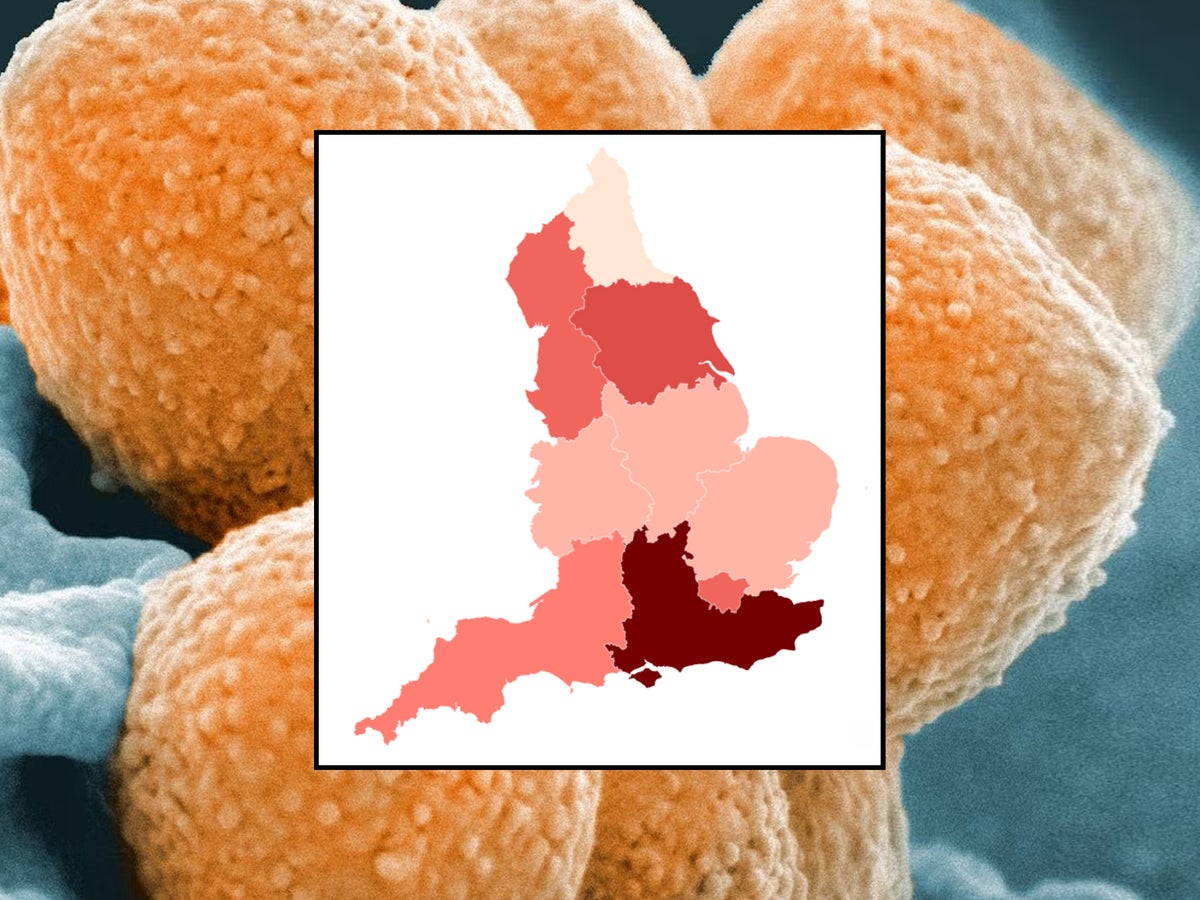
Parents have been warned to be on the lookout for symptoms after a rise in infections caused by the Strep A bacteria.
At least 19 children have died across the UK from invasive Strep A disease, new figures show, while the government has acknowledged there are supply issues for some of the drugs used to treat related infections.
Concern has been raised as cases are higher than usual for the time of year. The latest data from the UK Health Security Agency (UKHSA), released on Thursday 15 December, showed cases rose 27 per cent in the last week.
Infections have been found across the country, with the highest concentrations of Strep A in Yorkshire and southwest and southeast England.
Experts from the UKHSA said they were exploring whether the rise in cases was due to a lack of immunity due to Covid lockdowns.
The government has introduced serious shortage protocols (SSPs) for three penicillin medicines – antibiotics used to fight the bacterial infections.
Pharmacists can now legally supply alternative forms of the medicine if they do not have the specific formulation stated on the prescription, such as an oral solution.
The SSPs, which cover the entire UK, are intended to lessen the need for patients to return to their GP for a different prescription when they cannot get hold of a medicine. Penicillin comes as liquid and pills.
But chemists said they were “baffled” as to why it had taken so long for the government to introduce the protocols after complaining for weeks of difficulties in accessing antibiotics.
Health officials have stressed that infections remain uncommon despite the rise in cases. According to UKHSA data, there have been 1.5 cases of invasive Group Strep A infection (iGAS) – the most serious form of infection linked with Strep A – per 100,000 children aged one to four since September in England.
There were 836 cases of iGAS between 12 September and 11 December, with cases spiking 27 per cent in the last week of the 13 week period.
Authorities keep close track of iGAS. It has a high death rate, killing between 9 and 12 per cent of all people recorded to have been infected in each of the past five years.
Data from the UKHSA shows 16 children under the age of 18 have died in England since September.
Three other deaths of children have been recorded in Belfast and Wales, taking the UK total to 19.
When looking at this year’s death toll in England, the last time there was a comparitively intensive period of Strep A infection was in 2017/18, when there were four deaths in children under 10 in a similar time frame.
Public Health Scotland said it had recorded a total of 13 iGAS cases involving children under the age of 10 between the start of October and 1 December. Welsh authorities said cases remained rare.
Dr Colin Brown, deputy director of UKHSA, said: “Scarlet fever and ‘strep throat’ are common childhood illnesses that can be treated easily with antibiotics. Please visit NHS.uk, contact 111 online or your GP surgery if your child has symptoms of this infection so they can be assessed for treatment.
“Very rarely, the bacteria can get into the bloodstream and cause more serious illness called [iGAS]. We know that this is concerning for parents, but I want to stress that while we are seeing an increase in cases in children, this remains very uncommon.”
Between 12 September and 11 December there were 7,750 cases of scarlet fever, rising 17.4 per cent in the last week of the 13 week period.
The sharpest rise was in northeast England where cases nearly doubled to 775, with 28.9 per 100,000 people infected.
Health officials are urging parents to contact NHS 111 or their GP if their child is getting worse, is feeding or eating much less than normal, has had a dry nappy for 12 hours or more or shows other signs of dehydration.
They should also seek help if their baby is under three months and has a temperature of 38C, or is older than three months with a temperature of 39C or higher.
A very tired or irritable child is also a red flag.
The government has sought to ease worry over the infections, though it has told parents to be vigilant in checking their children for symptoms.
No 10 said the NHS was prepared and the government was not aware of any current shortage of the antibiotic amoxicillin, which is used to treat bacterial infection.
Asked about the recent rise in cases, the prime minister’s official spokesperson said: “We are seeing a higher number of cases of Group A strep this year compared to usual.
“The bacteria we know causes a mild infection which is easily treated with antibiotics and in rare circumstances it can get into the bloodstream and cause serious illness.
“It is still uncommon, but it’s important parents are on the lookout for symptoms.
“But the NHS is well prepared to deal with situations like this, working with the UK Health Security Agency.”
He said any parents who are concerned should contact the NHS.







